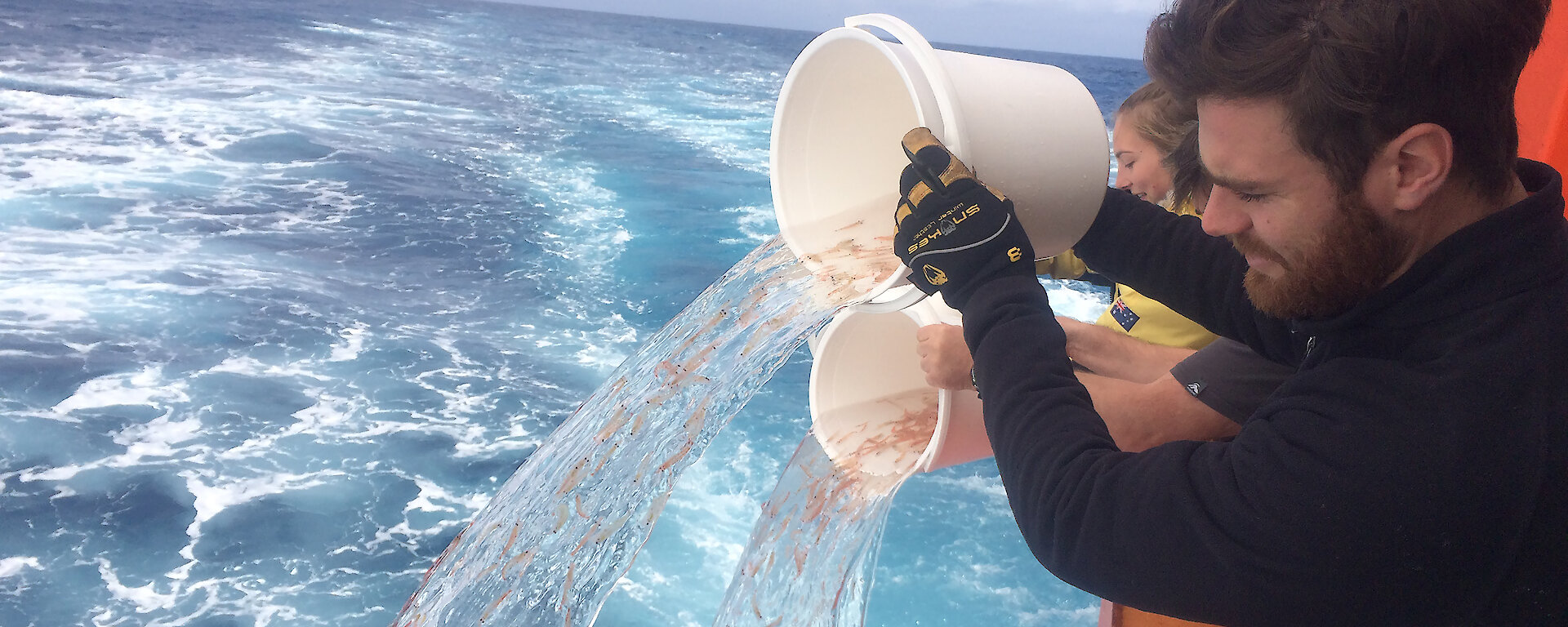This code covers employees of the AAD, and includes employees from other institutions when they are engaged in research with the AAP. Where this code varies from the code of their home institution, our code prevails with respect to research with the AAP.
This code is based on the following principles. In the AAD, research describes any critical and creative activity undertaken on a systematic, disciplined basis and dedicated to increasing knowledge. The defining characteristics include:
- a dependence on formal, disciplined modes of inquiry
- technical, conceptual, or development of innovative scientific methods
- an open, rigorous approach to the testing of results
- a commitment to publication in some form.
Debate on, and criticism of, research work are essential parts of the research process. Research workers should:
- work only on approved Australian Antarctic research projects
- demonstrate integrity and professionalism
- observe fairness and equity
- participate only in work which conforms to accepted ethical standards
- participate only in work which they are competent to perform
- avoid real or apparent conflicts of interest
- ensure the safety of those associated with the research.
Reasonable requirements for confidentiality of data must be observed, consistent with the requirements of the Antarctic Treaty. Research workers must not use such information for their own personal advantage or that of a third party. Research involving animal or human subjects must be approved for ethical clearance by the appropriate ethics committees. Special conditions attached by the committees must be scrupulously adhered to. All researchers must recognise that the onus is on them not only to adhere to such conditions and processes, but also to provide the various assessment bodies with timely and appropriate information to enable them to make a full assessment of proposed and progressing work.
Theme Leaders are responsible for the conduct of research within their programs, the observance of this code, and ensuring all workers are familiar with the code. All research workers are individually responsible for ensuring their work conforms to this code.
Chief investigators must obtain permits from the relevant authorities and meet all legislative requirements, including Environmental Impact Assessments, and ethics approvals prior to a final approval being granted by AAD for the project to go ahead. Research involving plants and/or animals or entry into designated protected areas will also require permits. Quarantine permits may also be required for returning samples to Australia.
Where a person is in doubt about the applicability of provisions of this code or about the appropriate course of action to be adopted in relation to it, advice should be sought from the Chief Scientist. If requested, the advice will be provided in confidence.


